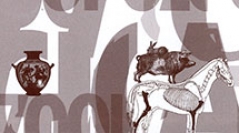

 Anthropozoologica
45 (1) - Pages 157-172
Anthropozoologica
45 (1) - Pages 157-172The scarcity of ground animals, the symbolic importance conferred on red meat, and the social stratification marked by numerous food prohibitions, made of the dog a choice food in the whole of the pre-European Polynesian area. Sacrificial food intended in offering for the gods and for ceremonial consumption, support of rites of exchanges and conciliation, reserved for the elite of the ancient society, its consumption was raised in Tahiti by the first Europeans in contact before being deconsecrated by the English and French missionaries. In spite of the numerous changes which marked the evolution of French Polynesia during the last two centuries, and the depreciation of dog as food, the consumption of dog is occasional today but always presents among local population. A survey on food habits and representations led in urban zone of Tahiti and Moorea allowed to bring to light the durability of periodic consumption of dog meat on behalf of specific social groups. The preparation of a dish for base of dog makes the object of reasoned choice by the animal intended to be shot down, of a preliminary preparation and a particular mode of cooking, and of an original mode of culinary preparation. Disapproved by the population of metropolitan origin and by the public authorities, dog meat constitutes one of the ethnic gustative markers in the foundation of ma’ohi identity in reconstruction.
Anthropology of food, food habits, cynophagy, Polynesia, Tahiti, dog, identity.